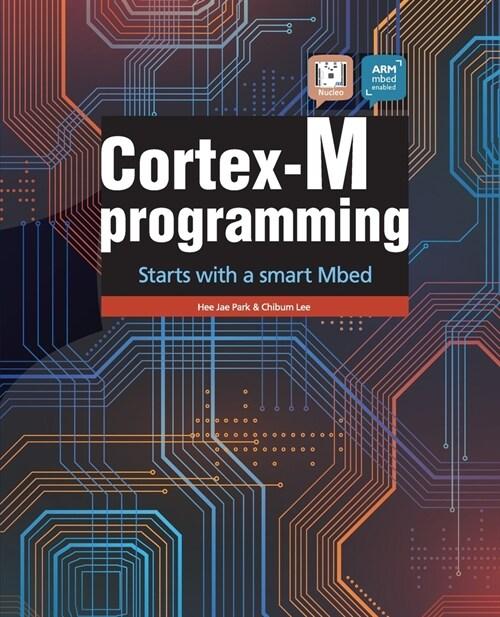책 이미지
![[eBook Code] Power System Optimization](/img_thumb/9781118724774.jpg)
책 정보
· 분류 : 외국도서 > 기술공학 > 기술공학 > 전자공학 > 일반
· ISBN : 9781118724774
· 쪽수 : 392쪽
목차
Foreword xvii
Preface xix
Acknowledgments xxv
List of Figures xxvii
List of Tables xxxi
Acronyms xxxv
Symbols xxxix
1 Introduction 1
1.1 Power System Optimal Planning 2
1.1.1 Generation Expansion Planning 3
1.1.2 Transmission Expansion Planning 5
1.1.3 Distribution System Planning 7
1.2 Power System Optimal Operation 8
1.2.1 Unit Commitment and Hydrothermal Scheduling 8
1.2.2 Economic Dispatch 12
1.2.3 Optimal Load Flow 14
1.3 Power System Reactive Power Optimization 16
1.4 Optimization in Electricity Markets 18
1.4.1 Strategic Participants’ Bids 18
1.4.2 Market Clearing Model 20
1.4.3 Market Equilibrium Problem 21
2 Theories and Approaches of Large-Scale Complex Systems Optimization 22
2.1 Basic Theories of Large-scale Complex Systems 23
2.1.1 Hierarchical Structures of Large-scale Complex Systems 24
2.1.2 Basic Principles of Coordination 27
2.1.3 Decomposition and Coordination of Large-scale Systems 28
2.2 Hierarchical Optimization Approaches 30
2.3 Lagrangian Relaxation Method 36
2.4 Cooperative Coevolutionary Approach for Large-scale Complex System Optimization 40
2.4.1 Framework of Cooperative Coevolution 41
2.4.2 Cooperative Coevolutionary Genetic Algorithms and the Numerical Experiments 43
2.4.3 Basic Theories of CCA 45
2.4.4 CCA’s Potential Applications in Power Systems 46
3 Optimization Approaches in Microeconomics and Game Theory 49
3.1 General Equilibrium Theory 51
3.1.1 Basic Model of a Competitive Economy 52
3.1.2 Walrasian Equilibrium 53
3.1.3 First and Second Fundamental Theorems of Welfare Economics 54
3.2 Noncooperative Game Theory 55
3.2.1 Representation of Games 55
3.2.2 Existence of Equilibrium 60
3.3 Mechanism Design 61
3.3.1 Principles of Mechanism Design 61
3.3.2 Optimization of a Single Commodity Auction 63
3.4 Duality Principle and Its Economic Implications 66
3.4.1 Economic Implication of Linear Programming Duality 66
3.4.2 Economic Implication of Duality in Nonlinear Programming 68
3.4.3 Economic Implication of Lagrangian Relaxation Method 71
4 Power System Planning 76
4.1 Generation Planning Based on Lagrangian Relaxation Method 76
4.1.1 Problem Formulation 78
4.1.2 Lagrangian Relaxation for Generation Investment Decision 80
4.1.3 Probabilistic Production Simulation 85
4.1.4 Example 87
4.1.5 Summary 91
4.2 Transmission Planning Based on Improved Genetic Algorithm 91
4.2.1 Mathematical Model 93
4.2.2 Improvements of Genetic Algorithm 95
4.2.3 Example 96
4.2.4 Summary 101
4.3 Transmission Planning Based on Ordinal Optimization 103
4.3.1 Introduction 103
4.3.2 Transmission Expansion Planning Problem 104
4.3.3 Ordinal Optimization 107
4.3.4 Crude Model for Transmission Planning Problem 111
4.3.5 Example 112
4.3.6 Summary 120
4.4 Integrated Planning of Distribution Systems Based on Hybrid Intelligent Algorithm 121
4.4.1 Mathematical Model of Integrated Planning Based on DG and DSR 122
4.4.2 Hybrid Intelligent Algorithm 124
4.4.3 Example 125
4.4.4 Summary 129
5 Power System Operation 131
5.1 Unit Commitment Based on Cooperative Coevolutionary Algorithm 131
5.1.1 Problem Formulation 132
5.1.2 Cooperative Coevolutionary Algorithm 133
5.1.3 Form Primal Feasible Solution Based on the Dual Results 138
5.1.4 Dynamic Economic Dispatch 140
5.1.5 Example 146
5.1.6 Summary 148
5.2 Security-Constrained Unit Commitment with Wind Power Integration Based on Mixed Integer Programming 149
5.2.1 Suitable SCUC Model for MIP 151
5.2.2 Selection of St and the Significance of Extreme Scenarios 154
5.2.3 Example 156
5.2.4 Summary 160
5.3 Optimal Power Flow with Discrete Variables Based on Hybrid Intelligent Algorithm 160
5.3.1 Formulation of OPF Problem 162
5.3.2 Modern Interior Point Algorithm (MIP) 163
5.3.3 Genetic Algorithm with Annealing Selection (AGA) 167
5.3.4 Flow of Presented Algorithm 169
5.3.5 Example 169
5.3.6 Summary 172
5.4 Optimal Power Flow with Discrete Variables Based on Interior Point Cutting Plane Method 173
5.4.1 IPCPM and Its Analysis 175
5.4.2 Improvement of IPCPM 180
5.4.3 Example 185
5.4.4 Summary 187
6 Power System Reactive Power Optimization 189
6.1 Space Decoupling for Reactive Power Optimization 189
6.1.1 Multi-agent System-based Volt/VAR Control 190
6.1.2 Coordination Optimization Method 193
6.2 Time Decoupling for Reactive Power Optimization 198
6.2.1 Cost Model of Adjusting the Control Devices of Volt/VAR Control 202
6.2.2 Time-Decoupling Model for Reactive Power Optimization Based upon Cost of Adjusting the Control Devices 207
6.3 Game Theory Model of Multi-agent Volt/VAR Control 215
6.3.1 Game Mechanism of Volt/VAR Control During Multi-level Power Dispatch 217
6.3.2 Payoff Function Modeling of Multi-agent Volt/VAR Control 224
6.4 Volt/VAR Control in Distribution Systems Using an Approach Based on Time Interval 231
6.4.1 Problem Formulation 233
6.4.2 Load Level Division 234
6.4.3 Optimal Dispatch of OLTC and Capacitors Using Genetic Algorithm 236
6.4.4 Example 238
6.4.5 Summary 244
7 Modeling and Analysis of Electricity Markets 247
7.1 Oligopolistic Electricity Market Analysis Based on Coevolutionary Computation 247
7.1.1 Market Model Formulation 249
7.1.2 Electricity Market Analysis Based on Coevolutionary Computation 252
7.1.3 Example 258
7.1.4 Summary 265
7.2 Supply Function Equilibrium Analysis Based on Coevolutionary Computation 265
7.2.1 Market Model Formulation 267
7.2.2 Coevolutionary Approach to Analyzing SFE Model 271
7.2.3 Example 273
7.2.4 Summary 283
7.3 Searching for Electricity Market Equilibrium with Complex Constraints Using Coevolutionary Approach 284
7.3.1 Market Model Formulation 286
7.3.2 Coevolutionary Computation 290
7.3.3 Example 292
7.3.4 Summary 301
7.4 Analyzing Two-Settlement Electricity Market Equilibrium by Coevolutionary Computation Approach 301
7.4.1 Market Model Formulation 303
7.4.2 Coevolutionary Approach to Analyzing Market Model 307
7.4.3 Example 309
7.4.4 Summary 318
8 Future Developments 319
8.1 New Factors in Power System Optimization 320
8.1.1 Planning and Investment Decision Under New Paradigm 320
8.1.2 Scheduling/Dispatch of Renewable Energy Sources 321
8.1.3 Energy Storage Problems 322
8.1.4 Environmental Impact 323
8.1.5 Novel Electricity Market 323
8.2 Challenges and Possible Solutions in Power System Optimization 324
Appendix 328
A.1 Header File 328
A.2 Species Class 329
A.3 Ecosystem Class 335
A.4 Main Function 336
References 338
Index 353













![[eBook Code] Power System Optimization](./img_thumb/9781118724774.jpg)



![[eBook Code] Power System Optimization (eBook Code, 1st)](/img_thumb/9781118724781.jpg)




